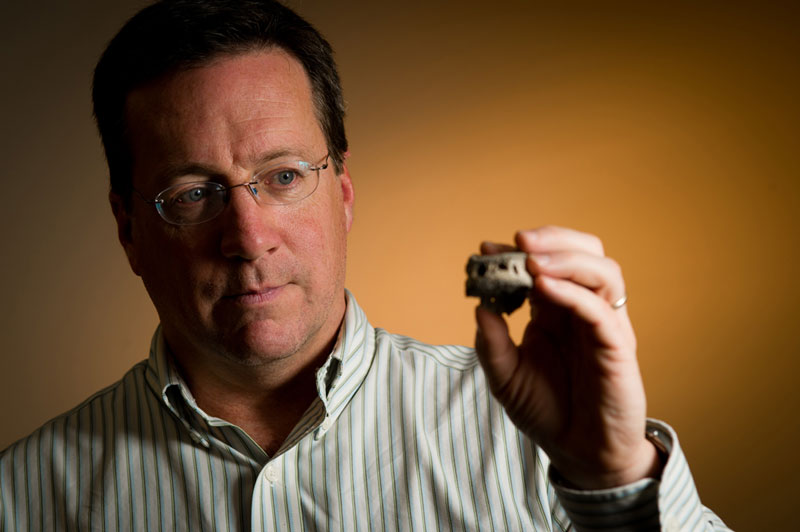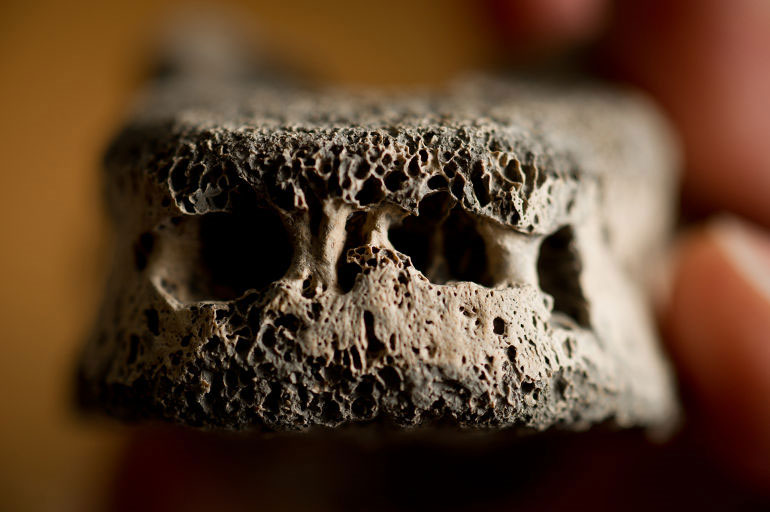People in the Middle Ages had modern diseases?
US scientists on January 3 published research on medieval bones found in Albania, showing some traces of the disease spread in modern times, causing pain to those who eat avocados. Unpasteurized milk.
The findings are published in the "American Journal of Physical Anthropology" . These are the first studies suggesting that the disease known as Brucellosis , already in Albania at least since the Middle Ages.
As an animal disease, brucellosis is common in rural areas breeding in the Mediterranean and often infects humans through eating live sheep and goat cheese and made from the milk of infected animals. .

The disease can cause flu-like symptoms, including fever, fatigue and weight loss, according to WHO documents. It also causes damage to the bones, which in this case, the scientists initially mistaken for tuberculosis.
The bones were found in the ancient city of Butrint of Albania, once a Roman colony and an outpost of the Roman empire and abandoned in the Middle Ages due to widespread flooding.
Two skeletons, thought to belong to teenage boys from the 10th to 13th centuries, also provide valuable findings about anatomy in the vertebrae.
Researchers at Michigan State University (USA) are part of an international team of archaeologists who have excavated the area, using special technologies to analyze bone fragments through DNA forensic technology. Latest.

They sent samples to the school's DNA research lab in East Lansing, Michigan, but the TB results were negative.
So they tried a new test for Brucellosis, based on the assumption that both diseases were caused by injury to the same bone, and this time the result was positive.
'In this case, this is the result of curiosity, perseverance and of course co-operation,' said David Foran, program director of Michigan State University's Scientific Research program, in a statement. school website.
'It's great to discover something new in something that has existed for thousands of years.'
- The truth of mythical myths about the Middle Ages
- The misconception of the Middle Ages makes you laugh!
- 5 silly predictions about the Middle Ages Day
- The rich in the Middle Ages suffered from lead poisoning due to their preference for ceramics
- 16 grisly torture methods of the Middle Ages
- Eyes round with 6 ridiculous bans on ridiculous Middle Ages
- Scary healing ways in the Middle Ages
- The wave migrated to Europe at the end of the Ice Age
- The three most notorious tyrants of the Middle Ages night
- Discover the 'birthplace' of modern people
- You: Discover new treasure from the Anglo-Saxon era
- Detecting longevity oak from the Middle Ages
 Discovered an ancient centipede fossil 99 million years old
Discovered an ancient centipede fossil 99 million years old Discovered bat-like dinosaurs in China
Discovered bat-like dinosaurs in China Discovered a 200-year-old bronze cannon of the coast
Discovered a 200-year-old bronze cannon of the coast Discover 305 million-year-old spider fossils
Discover 305 million-year-old spider fossils